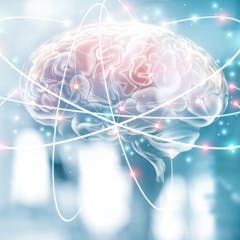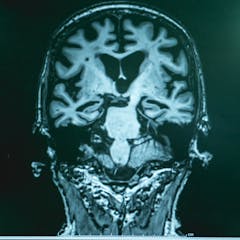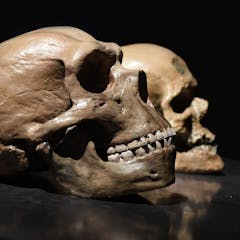
Articles on Neurology
Displaying 1 - 20 of 110 articles

Sleep habits can be improved by making shifts in both daytime and evening routines.

Some scientists theorize that artificial intelligence may be able to deduce thoughts from EEGs.

Is brain transplant surgery the stuff of dark Hollywood fairytales or a feasible possibility?

Scientists have published the first evidence that Alzheimer’s can be transmitted from person to person. Patients received human growth hormone from the tissue of donated brains.

Doing two things at the same time isn’t always as productive, healthy or safe as focusing on one thing at a time.

Montréal is home to one of the world’s largest brain banks, the Douglas-Bell Canada Brain Bank, where discoveries about different neurological and psychiatric diseases are made.

Most people can draw from tens of thousands of words in their memory within milliseconds. Studying this process can improve language disorder treatment and appreciation of the gift of communication.

Balancing well is a whole-body experience that develops over time and takes practice to master.

Disorders such as Alzheimer’s and epilepsy are difficult to diagnose with only occasional doctor visits. A new approach would allow fathering of extensive real-world data directly from patients.

Most of us have heard of epilepsy. Lesser known to the public is that seizures can lead to an uncommon but fatal complication known as sudden unexpected death in epilepsy.

Internal combustion engine cars still dominate global sales – it could be to do with the emotive influence they hold over drivers.

Seizures are like sudden electrical storms in the brain that can cause lasting damage. A set of immune cells in the brain called microglia may provide protection.

To answer this question, we’ll need to look at some different parts of the brain and what they do.

Transcranial alternating current stimulation, or tACS, is a type of brain stimulation that can change neural activity and improve memory, attention and executive function.

Some people believe their hand doesn’t belong to them. Others think bugs are crawling under their skin.

Pain has long been subjectively measured, leading to frustrations for patients and doctors alike. Identifying neural biomarkers of pain could improve diagnosis and lead to better treatments of chronic pain conditions.

We often feel drained of energy after a long day of work or study. Here’s how we measure what’s going on in our brain.

We live in a world where we frequently do not get enough sleep, but we need sleep if our brains are going to stay healthy and function efficiently.

The way human brains develop is special – but not quite as special as you’d like to think, if we consider Neanderthals as well.

Food allergies have been linked to behavioral and mood disorders, including depression, anxiety and ADHD.
